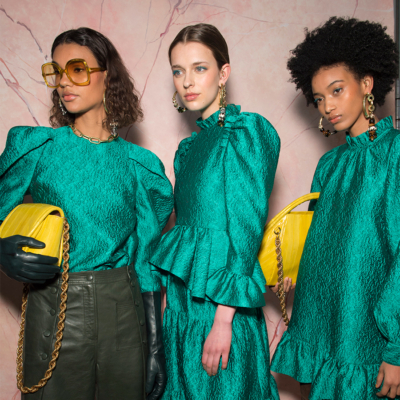Adrift on a sea of uncertainty, we need to turn to philosophers for guidance, specifically the late and the great, says Daisy Hickey …
As we kept our heads above the murky depths of 2020, we grasped floaty, but flimsy, lifesavers of honest thought and optimism. Relieved to have something to cling to, we clung. And for a while, we bobbed along, with these balloons bolstering us in the sea of uncertainty.
But as time passed, as the months slipped away somehow, we realised that these inflatables were losing buoyancy. Air can only keep you afloat for so long!
In order to surf these tides, we need some substance. It can’t be this hard to stay positive without testing positive! How did people get out of bed during the Spanish Flu? Did sufferers and healthy folks alike attempt to make each other laugh? From where did they source their strength? We can only imagine that that was what philosophy was for.
It is hard to gain insight from those we follow today. Try as we might to inject intelligence into our surface-level internet-surfing, it’s hard to find real meaning in our feeds. Philosophers who posited suggestions as to the “bigger picture” during the Enlightenment probably offered comfort to the confused, and brought light to the lost.
Perhaps we need to look to these ancient greats – the men (and women) who literally thought things for a living. The Reflection Professionals. Those who looked at love, religion, emotion, connection, friendship and the future, and developed a code for happiness – more than that, a creed by which to live, regardless of happiness or satisfaction. With that we can develop a whole ship. Not a temporary flotation device which we can like and share and wear out (cue the Jaws line: “You’re gonna need a bigger boat …”)
JOHN STUART MILL ON FREEDOM AND CIVILITY
British and political, JSM is the “wokest” of old-timey thinkers. He was instrumental in the election of female MPs to Parliament and transformed the conversation on women’s rights that continued at that time in the House of Lords.
He felt strongly that everybody should be free to do as they please as long as they didn’t hurt anyone else – simple as that. Your perfume can be as strong as you like, until it makes others’ eyes water. You can play Christmas music in your home at any volume you choose – until your neighbours ask you to give their ears a break. If you want to swim nude at the Vico, so be it!
The only time we can intervene with anybody’s freedom, he said, was for the sake of protecting children. Children should not experience things that only adults have the capacity to handle. This exception to Mill’s ideas is known as paternalism, and shows his excellent deference to the respect of civility.
BARUCH SPINOZA ON EMOTIONS
Spinoza grew up a Jewish child in Amsterdam. He knew the Torah back to front and contemplated becoming a rabbi at one point. But in his teenage years, he ended up divorcing his dogmas, and becoming inclined to a more rationalist way of thinking.
Big decision, right? It can’t have been taken lightly, given his obsession with emotion, and how emotion plays into our choices and actions. He utterly rejected that reason could defeat emotion. On the contrary, he contended, an emotion can only be displaced or overcome by a stronger emotion. For him, the crucial distinction was between active and passive emotions, the former being those that are rationally understood and the latter those that are not.
Spinoza was infatuated with feelings. He was no softie – he had it hard, as a Jewish philosopher in a very Orange Netherlands – but he ultimately disagreed that reason could defeat emotion.
We have been conditioned to accept over time that the more emotional we are, the less capable we are to reason. We’ve learned that if we make decisions in the heat of the moment, we often regret them. We’ve learned that when the circumstances of a situation don’t aggravate us, we are clearer in our rationale.
Be this as it may, Spinoza felt that our feelings do not lead us astray in our decisions. In fact, the presence of feelings and emotional biases in making decisions leads to better outcomes, as opposed to those made based on entirely “rational” conditions. It is reassuring to consider that maybe your best decisions have been your most emotional ones.
PLATO AND RENE DESCARTES ON TRUTH
These two are the head honchos of beginner’s philosophy – both Plato and Descartes searched for truth in the same fashion. They both said, don’t trust your eyes, because your eyes can lie. What we mistake for memory can occasionally only have happened in our dreams – and not what we witnessed in “real life”, at all.
But they had very different ways of demonstrating this. Plato, like all the best pub regulars, decided a long-winded fairytale story would be the best way to get his point across. Descartes, on the other hand, basically Marie Kondo’d his thoughts until he was only left with thoughts that were true. I’m sure you’ve heard of Netflix’s Kondo, who in her instructive cleaning series, evaluates her belongings, and disposes her those items that don’t “spark joy”.
Descartes would wrench open his mind, extract every thought he’d ever thought, and ask himself, “is this true?” If he couldn’t say for sure it was true, he’d throw it into the FALSE pile. He was eventually left with the thought that, if he was thinking, then surely he must exist, because he wouldn’t exist if he were not thinking. Thus, his famous phrase – “I think therefore I am”. This process is known as Cartesian. Go tell Marie Kondo she’s been rumbled, Descartes did it first.
This healthy scepticism is a great tactic to use nowadays. We have got to start Descartes-ing our thoughts. Someone tells us what they make in a year. Is this true? “Well it has to be true, X said it.” NOPE. Onto the pile of stuff we don’t know. Relationship goals? My hoop. FALSE. “She ran 5k? Um, I hear you can pause that runners app, don’t lie to me.” FALSE.
HUME ON TASTE
Oh Hume, the jolliest philosopher there ever was! “Bon David”, as he was kindly known by French admirers in his time. Typically, philosophers come across as rather stern or serious, but Hume was jovial in nature, with a penchant for pranks. This Scottish empiricist had many great ideas, but the one I like the best is his exploration of the concept of taste.
Diana Vreeland once said to have bad taste was better than to have no taste at all. I think what she meant was, it is better to maintain your free spirit and be true to your inclinations, than to have no discerning eye at all.
Hume actually attempts to clear up what it is to have taste for good. In his 1757 essay, “Of the Standard of Taste”, Hume suggests that there are no rules when it comes to what is a tasteful object. He says: “Beauty is no quality in things themselves; It exists merely in the mind that contemplates them; and each mind perceives a different beauty …”
Hume argues that we are all such walking bags of biases that it is simply really hard for us to observe art fairly, or develop any notion of a standard of beauty. But he does say that the characteristics of a proper judge of beauty or art include a “delicacy of the imagination”, in other words, the capacity to perceive small, subtle differences between an artwork’s features, breadth and depth of experience, and the ability to place oneself in the position of the work’s intended audience. This seems like something that can be learned with life experience and understanding of art. So, it seems there’s hope for the tasteless, and taste for the hopeless!
LOVETHEGLOSS.IE?
Sign up to our MAILING LIST now for a roundup of the latest fashion, beauty, interiors and entertaining news from THE GLOSS MAGAZINE’s daily dispatches.














